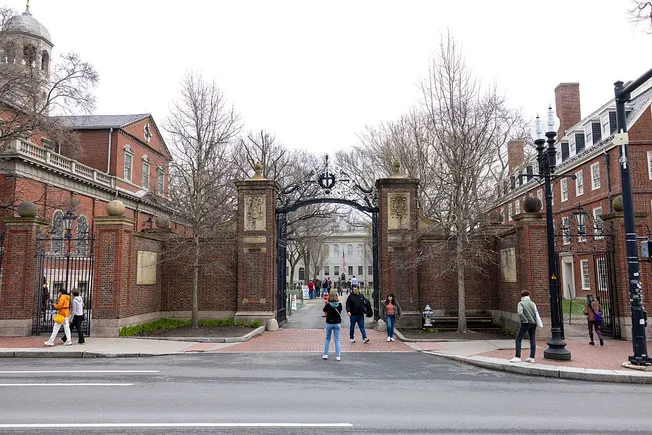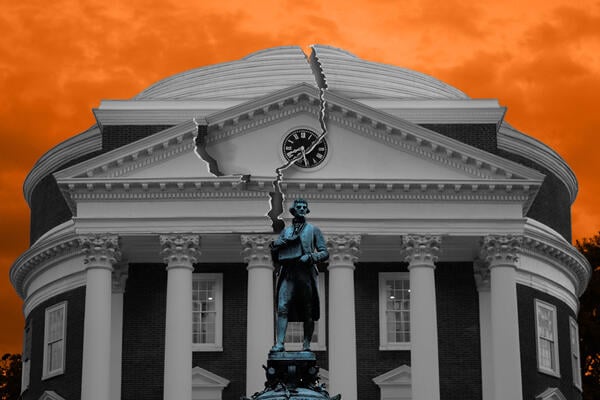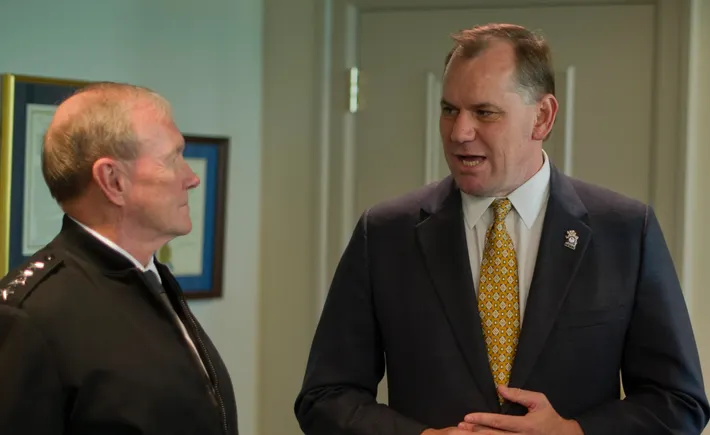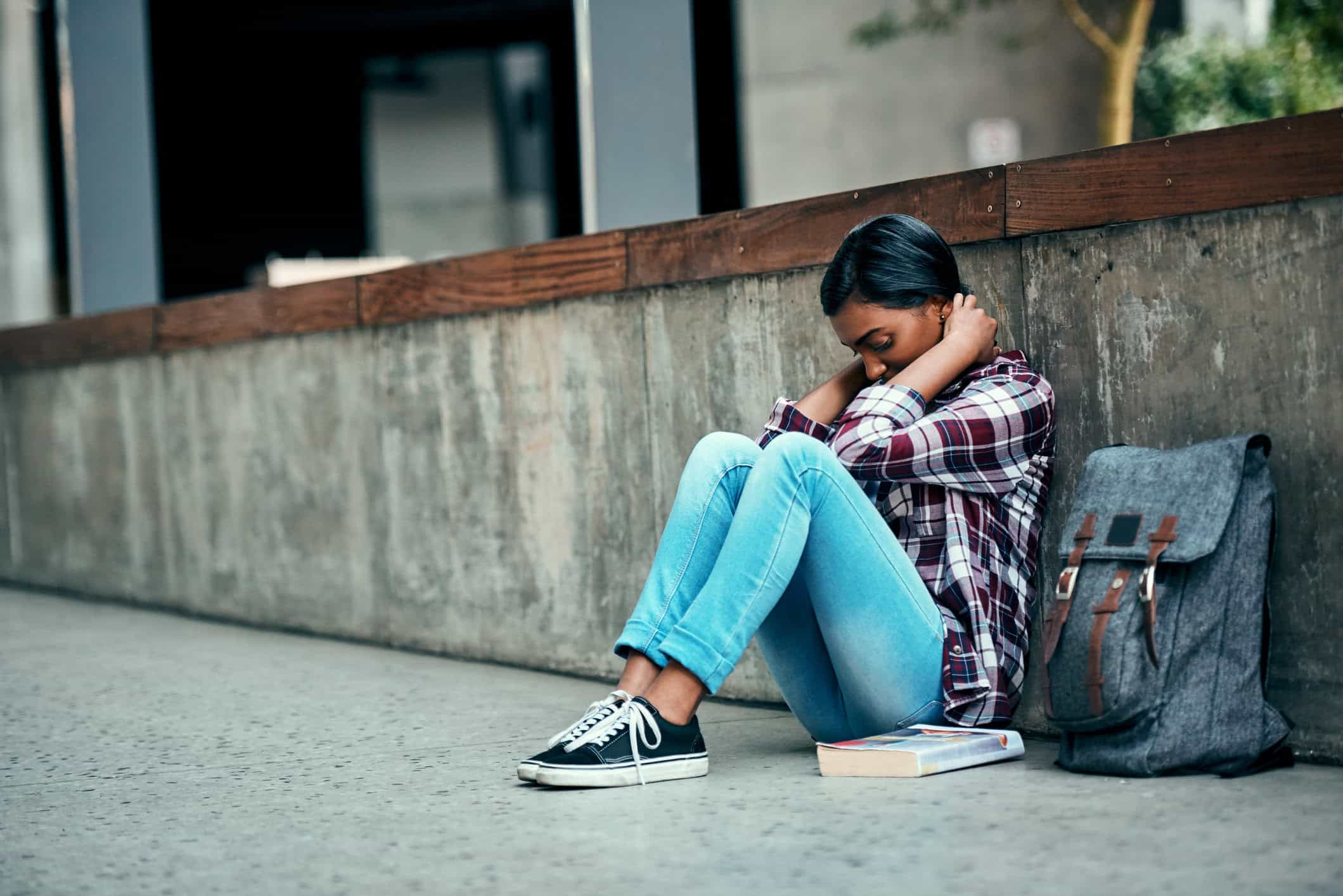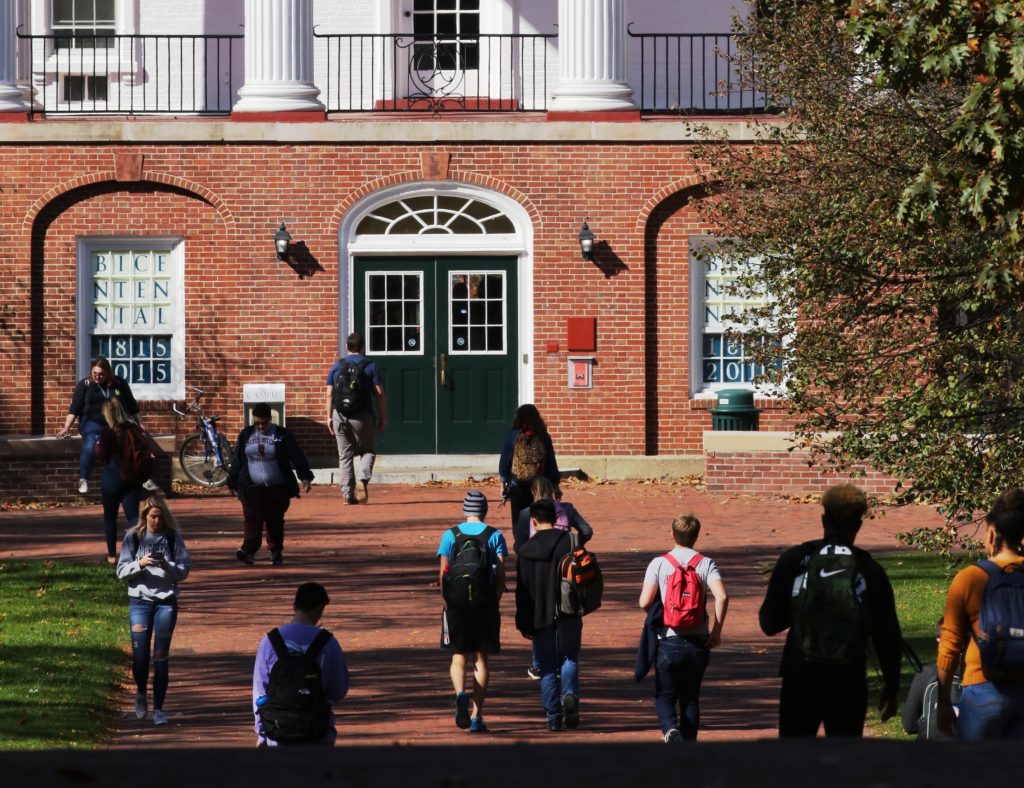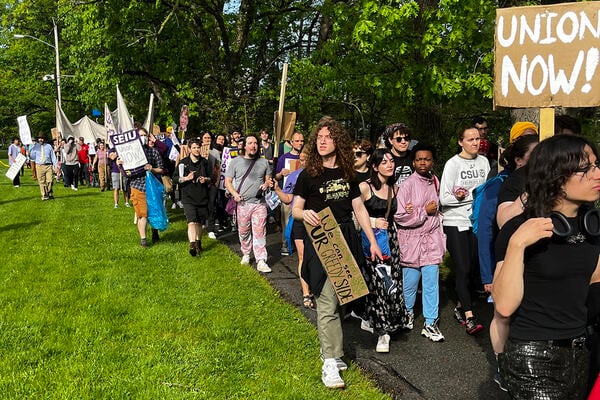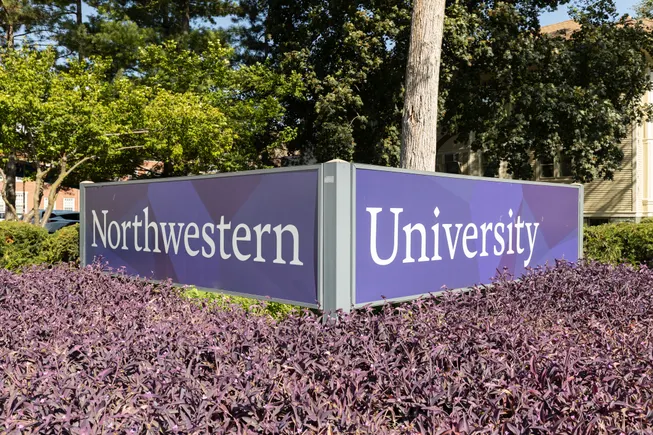After four decades in higher education and now beginning my third presidency, I’ve watched the ground shift dramatically beneath campus leaders. Here in 2025, outrage often outpaces facts, and presidents can sometimes become targets less for their actions than for what they represent.
Set against that backdrop, churn is high: 55 percent of presidents reportedly expect to step down within five years, and the average stint is 5.9 years, which is 2.6 years shorter than in 2006. Among presidents of color, it’s just over half.
The criticisms aimed at presidents under fire generally fall into three categories. First, the leader is genuinely ineffective or has made serious missteps. Second, the office itself is the lightning rod because it’s the place where the “buck stops.” Third, presidents are singled out for personal or political reasons, broadly defined, like being new, coming in as an external hire, or being a member of an underrepresented group. Opponents see these presidents as easy targets: less networked, more vulnerable, and therefore more expendable. This piece focuses on the third group: the leaders most vulnerable to attacks rooted in identity or circumstance rather than performance.
Such attacks are rarely random. They are orchestrated and designed to do harm. Some of these systematic campaigns rise to the level of defamation, attorney Katy Young, managing partner at Ad Astra Law Group, warns. In these moments, the silence of the campus, community, and board is not a strength—it is a surrender.
What follows is a playbook I wish university leaders and their board members would review and discuss before a sudden media blitz engulfs their president and campus.
Build early warning systems
Institutions are rarely blindsided because no one saw trouble coming. They’re blindsided because the right people weren’t talking early enough, or because the early signals were dismissed as noise.
In today’s hyperconnected environment, the difference between a passing controversy and a crisis often comes down to whether leaders catch the warning signs early. To build an effective early warning system, leaders need to think in three modes: proactive (anticipating), concurrent (tracking), and reactive (responding).
Before it happens: Run regular simulation exercises with trusted faculty, staff, and students who influence opinion on and off campus. Role-play how the university spokesperson or designated officials would respond to an orchestrated campaign disguised as “concern” or “accountability.”
As it ramps up: Communications staff must move beyond scanning headlines and Google alerts. They need to monitor social media channels, blogs, templated letters to the editor, alumni Facebook chatter, and local op-eds. Repeated or similar comments on these platforms can be early signals that a coordinated campaign is already underway.
When it breaks: Establish input and feedback loops with trusted stakeholders. If rumors are circulating, gather information from those who have received the “intel.” Listen carefully, collect details without “killing the messenger,” and thank those who come forward. Their willingness to share may give you just enough time to respond strategically before the game slips out of your hands.
Align legal and communication responses
One of the biggest mistakes I’ve seen universities make is allowing the legal and communications teams to develop strategies in isolation, by default rather than design. When this happens, the plays don’t line up, and the institution starts from a confused rather than cohesive position.
Lawyers for both public and private universities are trained to limit legal exposure. Typically, their instinct is to say—and to have others say—as little as possible. A common legal move is a bland placeholder: “We take this seriously and are looking into it,” or the always popular “Because this issue is under investigation, we cannot comment further at this time.”
Public institutions face more legal constraints under the First Amendment and state law than do private institutions. While the latter may have more regulatory leeway, both share the reputational risks of silence.
Communications professionals, by contrast, are trained to frame and guide the narrative. In a 24/7 social media environment, their role is to move quickly to establish context, add examples that illustrate institutional values, and sustain credibility with key audiences. Good communicators also insist on honesty—especially in tough situations—because nothing erodes trust faster than the perception of a cover-up.
Both approaches—when coordinated early on—can add value. Siloed strategies, by contrast, look like the right hand doesn’t know what the left is doing. Or worse, that the university is running a trick play to hide something.
Once a false narrative takes hold, it’s nearly impossible to “unring the bell.” That’s why legal and communications strategies must be integrated from day one. Boards must also resist the temptation to rely solely on legal advice. What makes sense in a courtroom may destroy credibility in the court of public opinion.
Steps for integrating legal and PR strategies
- Appoint a crisis liaison to help stakeholders weigh the tradeoffs between caution and urgency.
- Develop and rehearse a communications playbook in advance of a crisis that maps out roles and responsibilities and stresses the need for consistency in messaging for all audiences. You will also want to define who has final authority.
- Ensure the board has balanced information and recommendations from both professionals.
- Understand the costs of a communications delay.
Institutions that opt for silence to reduce legal exposure risk an erosion of trust in both the university and its leaders.
Train boards to lead, not lag
Boards can unintentionally make a crisis worse by staying quiet at key moments or by failing to visibly support their leader. (The Association of Governing Boards has found that nearly 40 percent of boards have not done scenario planning or have no plans to do it.) Very few presidents can remain viable or effective in the face of board abandonment or governance silence, or even the perception of abandonment.
That’s why boards must be trained in modern crisis response and media literacy. Though time consuming, Boards should consider annually run tabletop simulations—simple scenario-based exercises widely available from higher ed associations—so they practice crisis communication and governance before the real test arrives. Hands-on trainings like these remind boards that fiduciary duties are not the only ones that should be addressed in meetings, retreats, and the like.
In times of calm, not crisis, trustees should think about how their voice—or lack of it—shapes current and ongoing institutional narratives. Timely, confident, values-based statements from boards can reassure stakeholders that the institution is steady and supportive of a leader unfairly under fire.
Decide when to weigh in and when to wait
Not every attack requires a megaphone response. But some do. When misinformation is demonstrably false and spreading, the institution must correct the record loudly and clearly.
When facts are still emerging, it’s appropriate for a trusted spokesperson—not the president or board chair—to acknowledge the situation, commit to transparency, and set expectations for updates. But when the president is the target of personal, vicious, and untrue attacks, the board chair or designee should step forward. Staying under the radar in these cases is read as reticence or hesitancy, not prudent governance. To the targeted president, it can feel like desertion.
Know when to settle—and when to go to court
This may be the most contested element in the playbook.
Too often, the decision between settling and going to court is made strictly as a legal calculation. But in cases of defamation, settling can reinforce false narratives, deepen community skepticism, and leave current and future leaders wondering if the board will have their back when it matters most.
Timing, the strength of the legal arguments, and reputational harm all matter. Settlement may demonstrate common and financial sense when these conditions are in play: it is very early in the proceedings, the university’s legal position is weak, and little public attention has been drawn to the dispute. By contrast, settlement may be ill-advised when a case has been in the system for years, the filings strongly favor the university, and reputational harm has already been magnified by a media campaign.
In my own experience at California Lutheran University, both my predecessor Chris Kimball and I were dismissed from a long and highly visible lawsuit just as the university entered serious settlement discussions. As a defendant who had been the target of a vicious four-year media campaign, I was relieved to have my personal name cleared. But as a three-time university president, I was disappointed that the decision to settle prevented the truth from coming fully to light in the court system—through testimony, documents, and rulings.
The truth is the most powerful play we have, and settlements often keep it on the sidelines. That is the major and lingering downside, especially when settlements occur late in the game that the university is otherwise winning.
Build coalitions before you need them
When the contest turns rough, the teammates who step onto the field are the ones you’ve practiced and trained with long before. Effective coalitions aren’t built in the middle of a crisis; they are built in times of calm, long before the crisis hits.
Engage faculty leaders who understand the complexity and tradeoffs of the issue being contested. Build a cadre of alumni who speak about that issue from experience, not hashtags. Help students see the value of facts over speculation. Coalitions built on trust and mutual respect are the ones most likely to defend their institution and leaders when opponents try to shout them down.
Final thoughts: Protecting the presidency is protecting the institution and higher education as a whole
Character assassination doesn’t just harm a leader; it weakens the institution’s ability to attract students, retain donors, recruit faculty, and live out its mission. It also undermines public confidence in higher education at a moment when trust is finally starting to rebound.
Perhaps most importantly, it sets a dangerous precedent for our students, who may reasonably ask: If the institution won’t back its leader when things get messy, why should we believe it will back us?
Protecting presidents from orchestrated defamation is not about shielding us from critique. Fair critique is a healthy and vital part of accountability. What we must resist is the conflation of accountability with calculated campaigns of destruction.
Our opponents already have a playbook. It’s time we write, revise, and share our own. My hope is that this piece serves as one chapter in a larger guide to which many ACE members will contribute—because protecting the presidency is not just about safeguarding one leader. It’s about preserving the integrity and stability of the academy, especially at times like these, when individual leaders, specific institutions, and the whole sector are under fire.
If you have any questions or comments about this blog post, please contact us.

